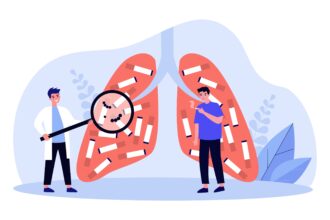According to research, 90% of people begin smoking before they turn 19 and 99% start smoking before they turn 26. Primarily, teenagers will consider smoking a fun and classy activity until they start experiencing its consequences. Most effects caused by tobacco use develop gradually and silently such that one might not know it’s happening.
Tobacco contains nicotine which causes addiction after continuous use over a certain period. Therefore, it becomes challenging for tobacco addicts to quit smoking. However, you can utilize nicotine pouches which come with different amounts of nicotine, to help you slowly quit smoking tobacco.
The benefits of these pouches are very impressive. You can get the nicotine pouches at snusdirect, where they are provided in various flavors.
Hazardous Chemicals Comprised in Tobacco Smoke
Smoking is very bad for your body. In fact, you are healthier by quitting smoking even if you gain weight. When you smoke tobacco, you subject your body to dangerous chemicals, which include the following.
Carbon Monoxide
Even though this gas is colorless and odorless, it is poisonous. When inhaled in large amounts in poorly ventilated places, it can cause death as it eliminates oxygen circulation in the blood. Therefore, people who smoke gradually weaken their muscles and organs as it becomes hard for enough oxygen to reach them. This is one of the reasons that smokers have a lifespan that is at least 10 years shorter than nonsmokers.
Tar
Tar includes the solid particles usually suspended in cigarette smoke. It is brown and sticky, thus causing stains on the lung tissues, teeth, fingertips, and nails. Also, these particles consist of chemicals like carcinogens which contribute to the development of cancer cells.
Metals
Cigarette smoke comprises heavy metals such as cadmium, cobalt, nickel, chromium, beryllium and arsenic. These metals can also cause cancer.
Oxidizing Chemicals
These chemicals include highly reactive chemicals that can cause harm to the blood vessels and heart muscles of smokers. The oxidizing chemicals react with cholesterol in the body, forming fatty materials on artery walls, making it hard for blood to be pumped. Thus, smokers can easily suffer from blood vessel illnesses, stroke or heart disease.
Effects of Smoking Tobacco
Lung Damage
Continuous cigarette use causes damage to the smoker’s lungs due to the intake of harmful chemicals from tobacco combustion. According to research, there has been a substantial increase in the development of lung cancer for smokers. In fact, about 9 out of 10 people who die from lung cancer are linked to cigarette use. Also, smoking increases the chance of getting health complications like asthma attacks, emphysema, chronic obstructive pulmonary disorder and bronchitis.
Heart Disease
Even though it might not occur immediately, smoking tobacco can damage blood cells, the heart and blood vessels. This will lead to complications in blood circulation, which might even be fatal. Likewise, tar and chemicals in tobacco can elevate a smoker’s risk of atherosclerosis which involves the blockage of blood vessels from plaque development. Smokers also have higher chances of developing peripheral artery disease, which is caused by the narrowing of the legs and arms arteries. Having peripheral artery disease will elevate the risk of heart attack, blood clots, stroke and angina.
Fertility Issues
Smoking causes a fertility problem for males and females. Male smokers elevate the risk of erectile dysfunction depending on their smoking frequency. Again, they can reduce their fertility following the quality reduction of the sperm.
Consequently, females can damage their reproductive system making it more challenging to conceive. This may result since tobacco contents interfere with their reproductive hormones.
Pregnancy Complications
Any expectant mother must never forget their actions might affect the life and health of the unborn child; thus, they should always be cautious.
According to research, cigarette use can affect the growing fetus in various ways, including elevating the risk of preterm delivery, elevating the chances of ectopic pregnancy and lowering the infant’s birth weight. Also, the baby may develop congenital conditions like cleft palate and cleft lip. Smoking when pregnant may also put the unborn baby at risk of damaged central nervous system, lungs and brain and increase the risk of baby’s death.
Type 2 Diabetes
According to research, regular smokers have about 40% higher risk of suffering from type 2 diabetes compared to non-smokers. If you have diabetes, your physician will always advise you to quit smoking as it makes it challenging to manage the condition.
Poor Oral Hygiene
Compared to non-smokers, smokers have a double risk of getting gum illnesses, and the risk elevates with the frequency of smoking. The most common signs of gum disease include sensitive and loose teeth, tender and swollen gums and bleeding while brushing. Your teeth will also be discoloured and stained from smoking.
Smoking Causes a Number of Terrible Health Complications
In conclusion, using cigarettes will generally weaken the smoker’s immune system making them more prone to diseases. Also, you might develop eye conditions such as diabetic retinopathy and glaucoma.










